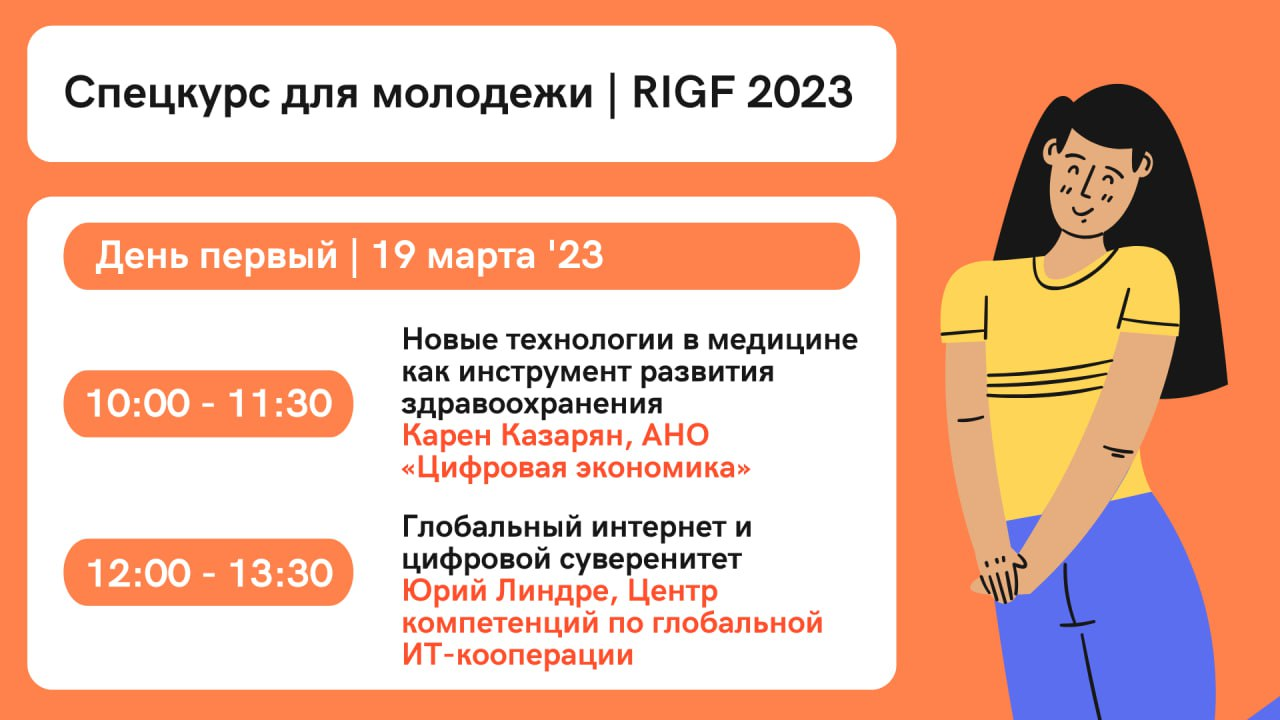
On March 26, as part of the Special Course for the Youth ahead of RIGF, we talked with students about staff in the digital economy and information security on the internet.
Anna Abramova (Ph.D. in Economics), Academic Supervisor of the Master's program in Artificial Intelligence in Business and Director of the MGIMO University’s AI Center, gave the first lecture, titled Staff for the Digital Economy. She talked about changes in employee skill requirements, as well as the staff shortage in the digital economy and its consequences.
Anna also highlighted the following labor market challenges:
- Economic instability
- Global challenges (e.g., environmental ones)
- Speed of adaptation to digital transformation (digital inequality, digital divide, low digital literacy)
- Adaptability of the education system (e.g., the introduction of basic courses on artificial intelligence).
The audience showed great interest in discussing the influence of neural networks and artificial intelligence on education. According to a survey, 42 percent of the students believe that the development of ChatGPT will primarily affect higher education and will require revised approaches to written work. Another 42 percent agree that it is necessary to introduce subjects into the curriculum, where part of the analytical work will require the use of this technology. And only 16 percent were in favor of banning the use of such technologies in schools and universities.
The second part of the day was devoted to information security on the internet. Anna Sutyrina (Dupan), who holds a Ph.D. in Law and serves as Director of the Institute of Legal Regulation at the National Research University Higher School of Economics, talked about new challenges, opportunities and threats in this sphere.
Anna spoke about destructive content and regulation of its circulation in Russia and abroad, ways to combat fake news and the potential harm it can cause.
Answering the question “Who should decide whether information is destructive content?,” the majority of the audience (84 percent) said that clear and understandable criteria and categories should be adopted at the legal level. Eleven percent opted for “social network moderators,” and another 5 percent left this decision in the hands of artificial intelligence.
The third meeting of the RIGF youth special course will be held next Sunday, April 2.
You can follow the lecture schedule on the course channel.



